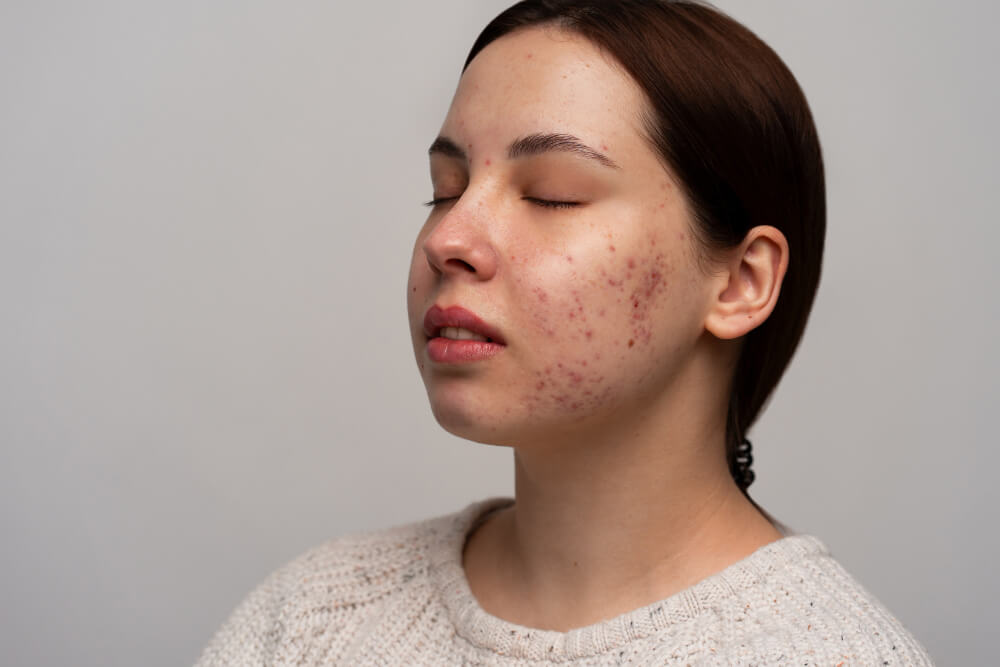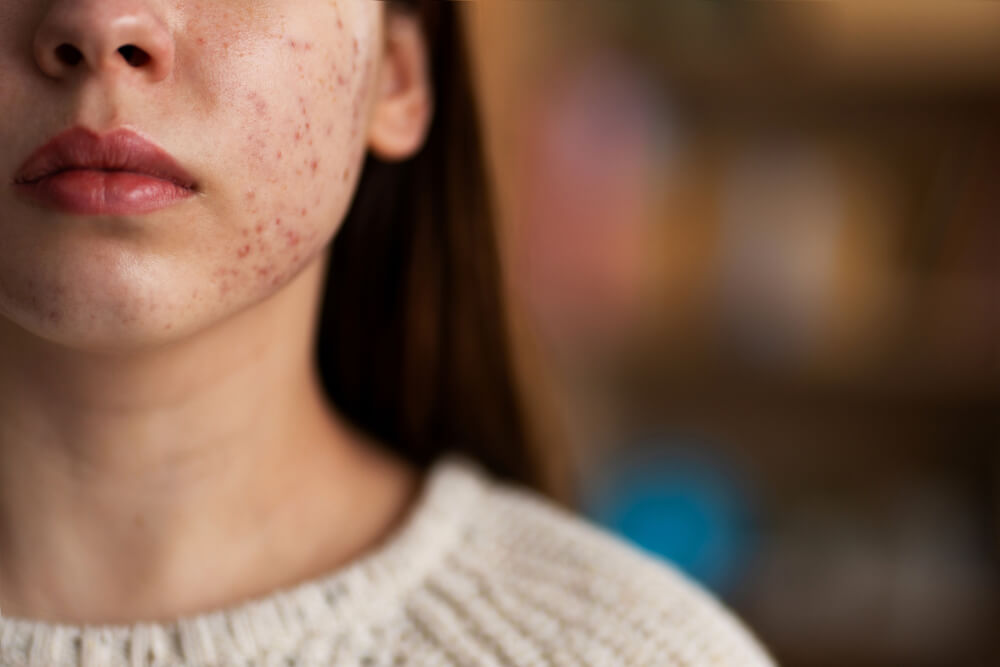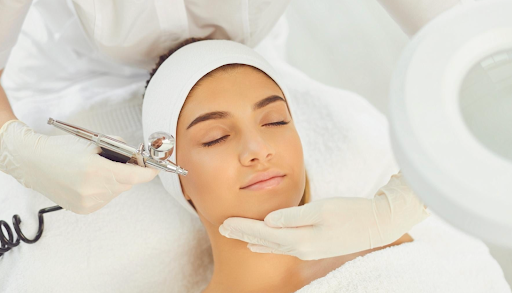Acne is a prevalent skin condition that plagues individuals worldwide. However, in Singapore, the humid climate and lifestyle factors significantly contribute to the prevalence of this skin ailment.
It’s not just a teenage problem (as 88% of adolescents in Singapore have acne), a considerable number of adults, particularly women, are also affected by acne.
In a recent 2019 study, it was found that 41% of adults treated at the National Skin Centre in Singapore had experienced acne since adolescence. And though the majority presented with adult-onset acne, it was also found that adolescent acne was more common in men (61%), whilst post-adolescent acne was more common in women (69%).
Table of Contents
ToggleWhat is adult acne?
Acne is a chronic inflammatory condition characterised by the presence of pimples, blackheads, whiteheads and cysts on the chest, face, neck, or back of individuals. While acne is usually associated with puberty, it can persist well into adulthood— affecting both men and women.
This common skin disorder may occur when one’s hair follicles under the skin get clogged with sebum (oil) and dead skin cells. This leads to outbreaks of lesions like pimples or zits.
Acne is most common among teenagers and young adults. However, it can affect people of all ages. Adult acne (also called post-adolescent acne) occurs after the age of 25. The same factors that may cause acne in adolescents are most often involved in adult acne.
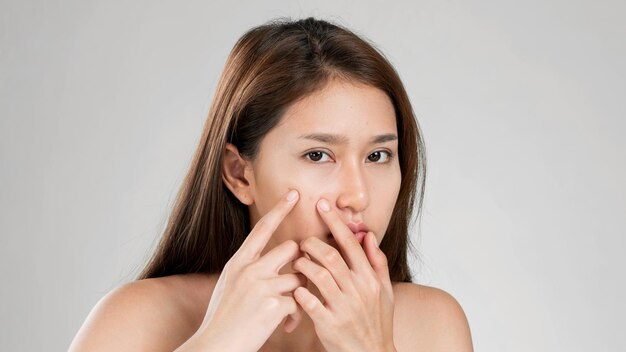
Adult female acne
Adult female acne refers to acne that occurs in women aged 25 and above. It is often triggered by hormonal fluctuations, especially during menstruation, pregnancy, or menopause, and can be exacerbated by lifestyle and environmental factors.
This form of acne can occur persistently or intermittently. It can even start during adulthood, even if the woman did not have acne during adolescence.
Adult male acne
Adult male acne, while less common, does occur and can be equally distressing. Also known as adult-onset acne, this variation of acne affects men beyond their teenage years. It is usually caused by an excess of an oily liquid produced by the skin glands called sebum.
In practice, excess sebum blends with dead skin cells and blocks the hair follicles. Subsequently, the follicles get infected by bacteria that live on the skin, causing painful spots and inflammation.
Genetics, lifestyle choices, environmental irritants and hormonal changes are the main driving forces behind adult male acne.
Causes of adult acne in Singapore
Understanding the underlying causes of adult acne is crucial for effective treatment and is the first step towards clearer, healthier skin.
Environmental factors
Singapore’s tropical climate, characterised by high humidity levels, creates a conducive environment for acne-causing bacteria to thrive.
Heat and humidity may stimulate the sebaceous glands in one’s skin to produce more oil, leading to a shiny appearance and making the skin feel greasy.
This excess oil may mix with sweat, environmental pollutants, and dead skin cells. Thus clogging the pores and contributing to the development of acne breakouts.
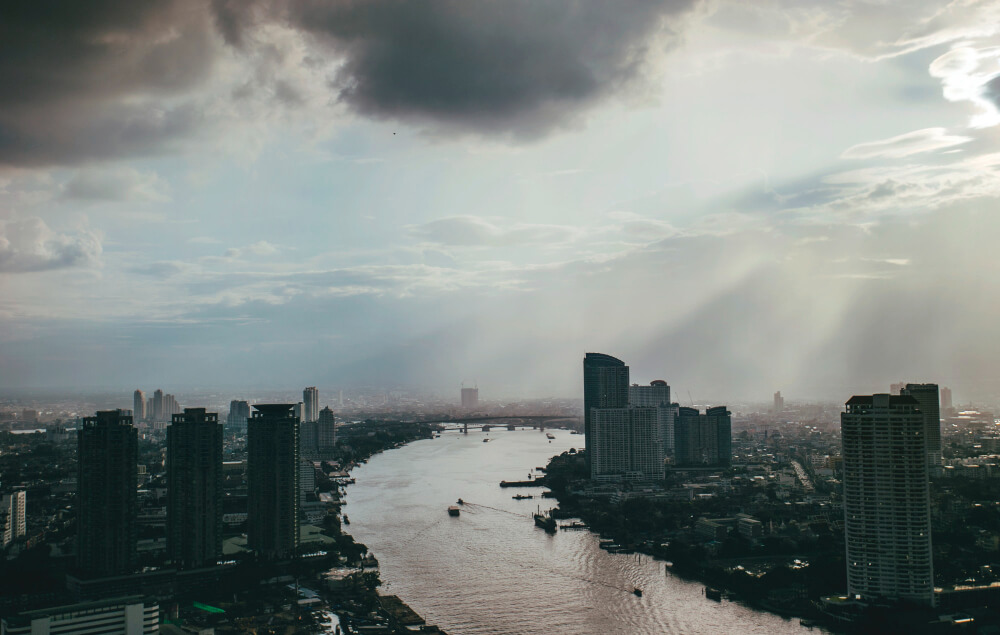
Hormonal fluctuations
Hormones may also play a significant role in acne development, especially during puberty, menstruation, and pregnancy. For example, during menstruation, hormonal fluctuations may trigger acne breakouts.
The fluctuations in estrogen and progesterone levels may cause the sebaceous glands to produce more oil. Thereby leading to clogged pores and breakouts.
Pregnancy is also a time of considerable hormonal changes, and some women may experience acne breakouts during this period due to an increase in androgen levels.
Impact of dietary habits
Singaporeans’ dietary habits, which often include spicy foods, oily dishes, and sugary treats, can influence skin health. Spicy foods may dilate blood vessels and increase blood flow to the skin, potentially triggering inflammation and exacerbating acne symptoms.
By the same token, oily dishes may lead to a rise in sebum production, which may clog pores and contribute to acne emergence.
Relatedly, sugary treats and high-glycemic foods may cause spikes in blood sugar levels, leading to increased insulin production. This, in turn, may stimulate the sebaceous glands to produce more oil, fostering an environment conducive to acne development.
Lifestyle factors
The fast-paced lifestyle in Singapore, coupled with high levels of stress, may disrupt hormonal balance and trigger acne flare-ups. In fact, inadequate sleep, poor skincare practices, and excessive use of cosmetics may further aggravate the condition.
Hygiene practices
Over-washing or under-washing the face can contribute to acne development. Excessive washing may irritate the skin and exacerbate acne, while inadequate cleansing can leave oil and dead skin cells to accumulate in pores.
Excess sebum production
Some people naturally possess overactive sebaceous glands that produce excess oil, which may clog pores and lead to acne. This often results in oily and dull skin, blackheads, and whiteheads.
Risk factors for adult acne
Several risk factors may make a person more susceptible to developing adult acne.
Demographic factors
Age, gender, and ethnicity can influence one’s susceptibility to this skin condition. Women are more prone to hormonal acne due to fluctuations in oestrogen and progesterone levels, while men may experience acne due to testosterone imbalances.
Lifestyle choices
Unhealthy lifestyle habits, like abnormal alcohol consumption, smoking and poor dietary choices, may contribute to skin inflammation and acne formation.
Additionally, frequent exposure to environmental pollutants and harsh skincare products may exacerbate acne symptoms.
Role of stress
Singapore’s competitive work culture and demanding lifestyle can lead to chronic stress, which negatively impacts skin health. Stress hormones like cortisol stimulate oil production and inflammation, leading to acne breakouts.
Furthermore, cortisol may also increase inflammation in the body, which may exacerbate acne symptoms. Inflammation may cause the skin to become red, swollen, and painful, leading to the formation of pimples, blackheads, and whiteheads.
Stress may also trigger unhealthy habits, like poor sleep and a lack of exercise, which may further contribute to the problem.
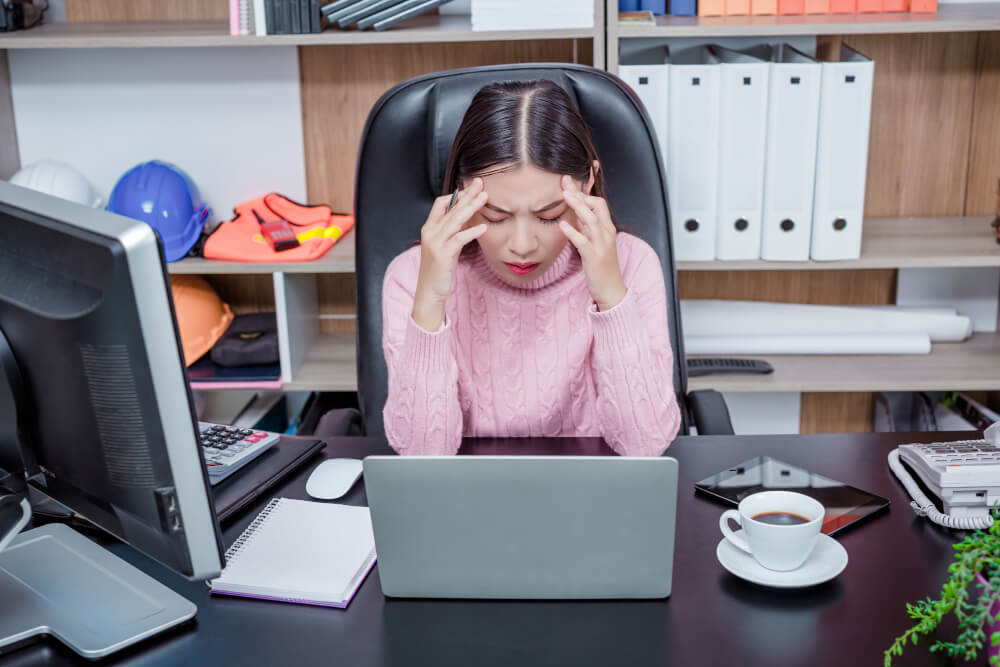
Common symptoms of adult acne
Symptoms of adult acne are similar to those of regular acne and include whiteheads, blackheads, and pimples. In more severe cases, swelling, irritation, painful nodules and deep cysts may form beneath the skin surface.
Treatment for adult acne in Singapore
Effective management of adult acne requires a multifaceted approach, combining topical medications, oral treatments, skincare products, and medical procedures.
Topical medications
Topical medications are usually the first line of treatment for adult acne. These can include over-the-counter solutions containing ingredients like benzoyl peroxide, salicylic acid, or retinoids.
Oral medications
In cases of severe or ongoing acne, oral medications like antibiotics, hormonal contraceptives, or isotretinoin, a powerful drug used for severe, resistant acne, may be prescribed to address underlying hormonal imbalances or reduce oil production.
Acne treatment products
Skincare products formulated with acne-fighting ingredients, such as niacinamide, tea tree oil, or sulphur, can help control oiliness, prevent breakouts, and promote skin healing.
Medical procedures
Medical procedures may be recommended for severe cases or those that don’t respond to other treatments, as well as acne scars. These could include:
Laser acne treatment
Laser treatments may reduce the appearance of acne scars and post-inflammatory hyperpigmentation.
Surgical drainage of acne
In cases of severe acne, large cysts may be drained to help reduce inflammation and prevent scarring.
Chemical peels
Chemical peels may help remove dead skin cells, reducing the appearance of acne scars and promoting healthier skin.
Microdermabrasion
Microdermabrasion is a unique treatment that may help reduce the appearance of acne scars. Thereby promoting healthier skin.
Specialised facials for acne
Facial treatments can also be beneficial for those with acne. These treatments can help to cleanse the skin deeply. Thereby removing impurities and excess oil that can contribute to breakouts.
Recommended and proven facial options include:
- Sensitive Maskne Acne Facial: This revolutionary product exploits the hyperbaric method to infuse pure oxygen and nutrients into one’s skin, increasing resilience against environmental stresses.
- Crystal Clear Complexion Facial: This facial treatment helps one achieve healthy, glowing skin without overdrying it when used with an electrolyte-infused custom-blended mask.
- Clean Pores Facial: This award-winning treatment combines hyperbaric oxygen botanical solutions and magnetic infusion technology. These duo technologies complement each other and promise to balance sebum production, clear up acne, and prevent recurrence with deep hydration techniques.
- Clear Alchemist Facial: Specially designed for men, this product serves as an effective weapon against blemish-prone skin. Leveraging magnetic infusion technology and natural plant-based extracts, it delivers nourishing Antioxidants and Vitamins deep into the skin. Thus further strengthening one’s skin barrier and defence mechanisms.
- Essential Extractions Facial, where professional therapists extract your pimples and blackheads without spreading infection and inflammation.
Generally, these facials use targeted ingredients and techniques to cleanse pores, reduce inflammation, and promote skin renewal, aiding in the alleviation and prevention of acne.
Conclusion
While adult acne can be challenging to deal with, understanding its causes and treatment options can equip one with the knowledge to tackle it effectively. If you’re struggling with acne, consider visiting a reputable dermatologist or skincare specialist who can help guide you towards the most optimal treatment options for your unique skin needs.

